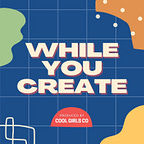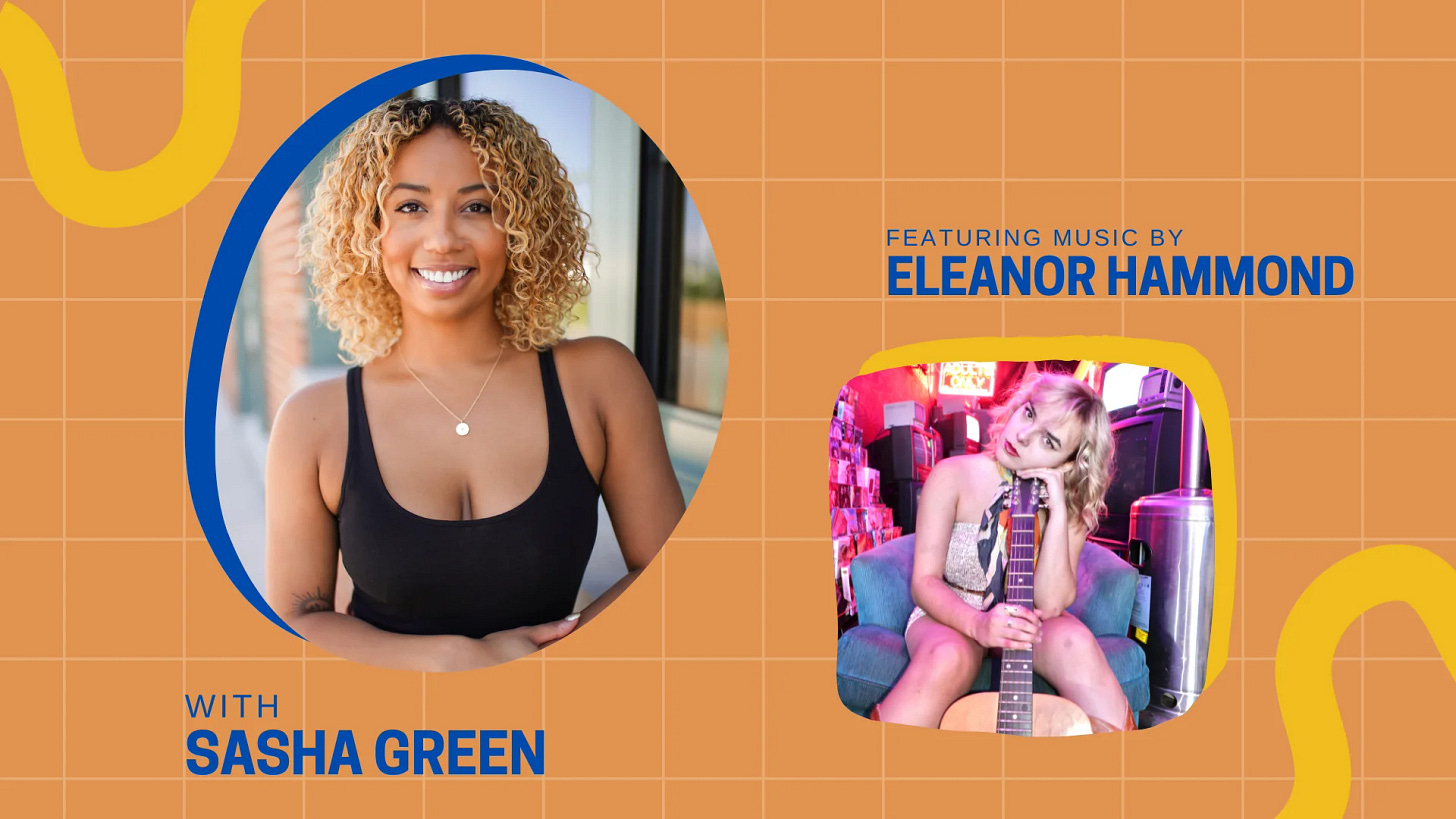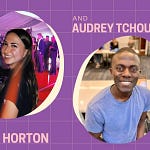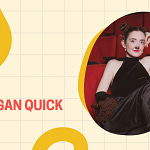We all know what it feels like. Imposter syndrome affects how we see ourselves and our work. In this episode, we talk with Sasha Green about how society shapes our sense of self and why we should celebrate our lived experiences and treat them as our superpowers.
________________
Sasha Green was born and raised in Houston, Texas and currently lives and works in Denver, Colorado as a Program & Operations Manager at Moonshot edVentures, a local education non-profit that supports diverse leaders and educators to design and launch the learning environments of tomorrow. Sasha is a fierce advocate for creating affirming spaces for people who hold diverse identities, particularly by providing equitable educational opportunities for all learners, especially historically marginalized communities. Sasha graduated on the Dean’s List with a Masters in Teaching from Relay Graduate School of Education and holds a Bachelors of Science in Psychology and a Minor in Neuroscience from Sewanee: University of the South. Her career in education began working as an elementary school teacher in Denver, providing high quality instruction to low-income students and students of color. Sasha's work now focuses on building systems for program operations across programs and teams, continually improving the best practices for program learning, and creating systems for measuring impact. She hopes to continue creating sustainable systems and executing program learning objectives in a way that is innovative, equitable, and continually improving.
Our musical guest is Eleanor Hammond. She has been singing, playing guitar and piano, and songwriting since she was 11. She has been in at least two theatrical productions per year from ages 14-22. She often uses her theatrical background to incorporate storytelling into her lyrics. Her passion for composition became so strong that in 2019 she was inspired to write and produce a full-length feminist musical called Walls, the story of artist and founder of the Whitney Museum, Gertrude Vanderbilt Whitney. She then produced her second musical Newsflash! in 2021 with co-writer Em Beihold. She is now releasing a string of singles. Eleanor has most often been compared to powerful women like Kate Bush, Stevie Nicks, Miley Cyrus, Joni Mitchell, and Alanis Morissette. Eleanor’s dynamic and confident singing, demanding stage presence, and prophetic yet relatable lyrics make her a unique and trailblazing artist. Her songs vary in genre, keeping the listener on their toes, yet still feel cohesive and of the same creator, one that has been honing her sound for years, inspired by her influences and growing worldview. She is currently performing shows in LA and working on her debut EP to be released in the spring of 2023.
Special thanks to Adreyauna at Ink to Prosperity. Ink to Prosperity a space that provides personal & career development from a spiritual perspective. You can learn more at inktoprosperity.com or on Instagram @inktoprosperity.
Production music is by Lohi5. You can listen more on Instagram @lohi5.music.
While You Create is an audio show brought to you by Cool Girls Collective — we’re a community shaping convos around creativity. You can find us on Instagram @coolgirlscollective. Be sure to subscribe to our weekly newsletters at coolgirls.co.
Episode Transcript
Ruth: Hello. Hi. Happy 2023. It's really weird saying that. 2023. I feel like we're living in a sci-fi movie. We took a little break to regroup from the holidays, but we're back and have been prepping some really exciting and hopefully inspiring episodes for you this year. I feel like the New Year is always filled with ideas about growth. What old habits can I get rid of? What good traits can I nurture? What are the things I've always wanted to do but never had the courage to? It's tough sometimes answering these questions and we can really get in our heads. I know I do. It's worse when we already doubt ourselves, even before we start something new, or we continue to doubt even when we've been at it for a long time. Imposter syndrome. That's what they call it, right? I think all of us have experienced it in one way or another, and it can seriously get in our way.
Sasha: It's this phenomenon where you never truly feel successful. You feel a lack of confidence in yourself. And I feel it's a result of the messages that society sends you about what is good and normal and acceptable.
Ruth: This is Sasha Green. And rather than me telling you who she is, she'll introduce herself.
Sasha: So I identify as a biracial, Black identifying woman. I'm cisgender, heterosexual, I'm the daughter of two immigrant parents. My mom is Jamaican, my dad is British. I’m American-born. I was raised in the South in Houston, Texas. And I'm an educator and a musician and an empath.
Ruth: Sasha is also the program and operations manager at Moonshot edVentures. It's a Denver based education nonprofit that supports diverse leaders and educators in designing and launching the learning environments of tomorrow. In this work, Sasha often encounters imposter syndrome with those, particularly educators of color, who go through their programing. She sees a lot of her own experiences in their stories and hopes that one day we won't have to feel that way anymore. Before we get into it, here's Adreyauna with a moment of meditation.
Adreyauna: Hello, it's Adreyauna here, and I want to pour some affirmations into you. So if you can put your hand over your heart. Take a few deep breaths in and out. And just listen in this moment. You are an extraordinary, fantastical, amazing and divine human. You are special. You are everything the universe has wanted. Your existence is a historical, cosmic phenomenon. How extraordinary and outstanding it is that you were created and you have lived and you have touched many lives and you have danced many songs and created many things. Your art, your desire, your love is proof that we need you. Because who else can create like you?
Ruth: Now back to the story. Growing up, Sasha felt like she was always caught in the middle of her identities, which affected her sense of belonging early on.
Sasha: I entered middle school and the schools were very segregated. So literally, I remember my cafeteria was like White people sat on one side and then like Black and Hispanic students sat on the other side of the cafeteria. And I remember when I was trying to find my social group, I received messages from both Black students and White students where Black students labeled me as that I talk White, or that I was the White girl or the smart girl that I wasn't Black. That message was very clear, and White kids labeled me as their Black friend, but I wasn't really Black because I talked White or I was the smart girl. And so those stick out to me as messages that I received from an early age where I felt like I didn't have a sense of belonging and just kind of internalized and accepted these messages that society was sending me.
Sasha: But it wasn't until Sasha was older that she could identify these conflicting messages as contributors to imposter syndrome.
Sasha: I was applying to college, and I got into a small liberal arts college in Tennessee on a full scholarship. And there was this, obviously excitement, because like a full ride. But there were all of these other reasons in my head of why that happens. I couldn't feel like I earned this because of all of my strengths or because, you know, I worked hard or any of those things. It was like, Oh, I probably only got a scholarship because I skipped a grade or I probably only got a scholarship because I'm Black. You know, there were just like all of these other reasons in my head as to why that happened. And of course, at the time, I didn't have the language or understanding to be like, this is imposter syndrome showing up.
Sasha: All of these feelings of self-doubt reared its ugly head in 2016, when the U.S. elections emboldened racism across the country.
Sasha: And so Trump just got elected and my school was dominantly White, affluent in the South. Coming out of that election, there were a lot of blatant micro and macro aggressions, like blatant racism on campus. Despite having been there for four years, doing well academically, I had friends, you know, it was like a successful experience. Being around that kind of environment where I'm suddenly being told I don't belong anymore. People are coming up to me at parties yelling White power in my face and, you know, making me question can I actually go out into the world and be successful? Do I belong here? Like all of those doubts came up for me again and it was kind of tough trying to plan for the real world, sitting in that self-doubt.
Ruth: But fortunately, this didn't stop Sasha from creating a community out of chaos.
Sasha: I ended up joining student government, and I started an affinity group for people of color on campus to have courageous conversations about race, because spaces like that didn't exist on our campus. And so having that community of people sharing about our lived experiences as people of color in a predominantly White school gave me that boost of confidence that I needed.
Ruth: After college, Sasha moved to Denver to pursue a career in education that also allowed her to earn a Master's degree in teaching. She graduated with honors, no less. It was during this time that she really became passionate about serving students, particularly youth of color, with a mission to ensure that young people wouldn't have the same othering experiences that she did.
Ruth: But in practice, this was much harder. Especially when teaching also comes with systemic discrimination, something so experienced firsthand in the school she worked at.
Sasha: They were very data driven, and any time there were assessments, we'd have this like data day, where people were celebrated for their test scores that they got in their classrooms. I was one of like two teachers of color and experienced this phenomenon that because I was a young first-year teacher, I just wasn't cutting it to where these seasoned teachers were. And when it came to my classes test scores, it was attributed to a team effort. I was like, I have actually put in a lot of hard work. It's the relationships that I felt with my students. It's the late nights that I've spent planning lessons. It’s the calls home to families when their kids are doing well or struggling. All of these things are what made this happen. It was not a team effort. When I started working with educators, particularly educators of color, it was kind of like the first time that I was pushed to reflect on my identity and my experiences and actually start to hear other people's experiences and realize this is happening to everyone.
Ruth: We're taking another quick break to hear from this episode's musical guest. For everyone currently experiencing self-doubts and hard times, this one goes out to you.
Eleanor: Hey, my name is Eleanor Hammond. I'm an artist based in Los Angeles, California. I call my genre theatrical pop because I combine my theatrical and singer-songwriter backgrounds together in my music. I wrote Sirens when I was in a dark depression and felt like there was no way out and no one to help. One night I woke up to the sound of an ambulance outside my apartment, sparking the song. The song then became a wake up call to those fighting mental health. We often go through life without checking in on ourselves, and before we realize it, we spiral out of control, often getting into unhealthy relationships to cope. The song has quirky, alt pop elements that feel familiar yet original, and I hope it can make those struggling with their own mental health feel less alone.
[Music]
Ruth: Eventually, all of Sasha's experiences led her to working at Moonshot edVentures. It's here that she gets to help make change happen for leaders and educators of different backgrounds. Those of us who feel out of place in our work and workplaces.
Sasha: The way that we do it is we have intentional space for people to actually reflect on their identities, their experiences, what they've learned from those experiences, and actually start to see their identity as a core strength to who they are. And so that's like the opposite of everything that I have been taught my whole life, that a lot of educators that I've run into have had experiences that have told them the opposite. And so when they come to our program to create something new, this identity of being an entrepreneur is like something that is really difficult for folks to lean into at first. When you have BIPOC women or LGBTQ identifying people trying to launch new things, there's a lot of imposter syndrome to unpack. One thing that we do is we're very identity forward. We encourage people to name their identities and we celebrate them.
Ruth: Sasha recalls one of her favorite breakthrough stories from Moonshot.
Sasha: I have a friend. She went through our program. She also identifies as half Jamaican and half White. We did a lot of identity unpacking together as a biracial woman who shared a similar cultural identity. And she had just graduated college when she joined our program. And was kind of like trying to start a business with someone that she went to school with. Co-founders, there's like a codependency there, right? But they were kind of at a place where she wasn't necessarily fully invested in the vision of her co-founder. We had shared experiences. So this feeling of like our parents being somewhat abrasive or like not as emotionally in-tune as we would have liked growing up as a result of that, a breakthrough that we had was that she has this like softness to her as a result of those experiences.
Ruth: In the end, Sasha's friend decided to pause the venture she was working on and instead focus on a new one that centers healing as protest. She creates healing spaces for educators, activists and other healers through yoga meditation.
Sasha: It's really hard to just stop and start over and do something that feels true to you. But she did that.
Ruth: But recognizing and even celebrating what makes us unique is only half the journey. The other half requires the rest of us to support each other in that process.
Sasha: There's intentional questioning. What was this space created to do? Like, what was this system built to do? I think that everyone should be interrogating that anywhere from education to politics to the media. Housing, like education. Access to education. All of these things are systems that were intentionally built to serve a purpose. As a society, we need to start to question and push for change on those things. And we need to actually start elevating examples of people who are going against the status quo, who are bold and disruptive, bringing attention to people who share marginalized identities and celebrating their successes.
Ruth: When I listen to Sasha speak, I get goosebumps. I can tell that this work of intentionally creating inclusive and supportive spaces is what she's meant to be doing. And I can tell how much she loves it. But we also talked about how our professional work doesn't necessarily define us. There can be more than one thing that brings us joy, and we should make space for those other passions, too.
Sasha: So I have been playing music since I was a child. I haven't released a song or anything, but I do still identify as a musician. It's interesting because I did think about imposter syndrome in the context of my music. Like over the past couple of years, I've really been focusing on finding my sound. My personal voice and tone has evolved over the years and leaning into like, what is the music that makes me feel something? And if I lean into that, it will make other people feel something.
Eleanor: My most recent release, Best of Tonight, is a celebratory eighties pop inspired dance track about a budding relationship and enjoying a night of spontaneous fun with someone. I wrote it for people to look at their break ups in a more positive light. Even if your relationship does end one day, you can still be happy for what you guys had. Feel free to dance along and I hope you enjoy. I want to thank Ruth for having me on her awesome podcast and you can find all my music under Eleanor Hammond on all streaming platforms.
[Music]
Ruth: And that's it for this episode.











